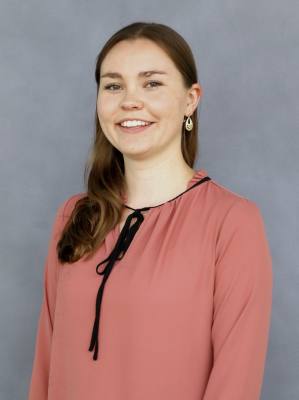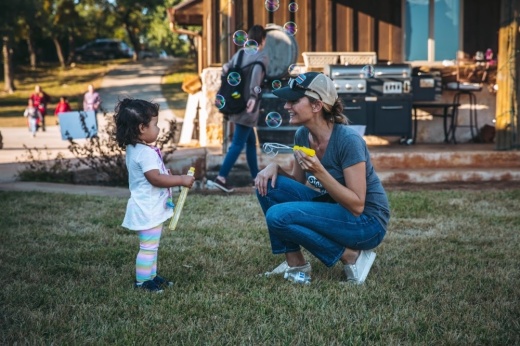“I realized, somebody just kissed her baby goodbye,” Smith said.
Though foster parents sometimes adopt the child they care for, the goal of foster care is always reunification with the child’s birth parents, Smith said.
Local foster parents have to navigate those complicated emotions and the sometimes confusing bureaucracy of Child Protective Services, while at the same time acquiring the basic supplies child care demands with only a few hours notice, Smith said.
Smith started her nonprofit Foster Village out of a Dripping Springs storage unit in 2016 to address the most immediate tangible needs of foster parents. The small space was stocked with diapers, clothes, car seats, bedding and other items children would need.
Smith said many children’s placements happen on an emergency basis, so foster parents can be alerted by Child Protective Services late at night that they have a child in need of a temporary home, sometimes with as little as an hour’s notice. Although CPS can provide such supplies and services, Smith learned from experience that it can be slow or difficult to get resources through the agency, she said.
Since 2016, Foster Village has grown to address the emotional and relational challenges foster families face, too, operating out of two homes—one in Dripping Springs and one in North Austin. At the two locations, foster parents and children can meet for play time and to connect with resources such as counselors.
“I think the community plays a pivotal role in helping to break generational cycles of adversity,” Smith said. “There are some great services and resources that are hopefully available but ultimately it’s this ‘it takes a village’ mentality that is going to lead to the greatest impact.”





